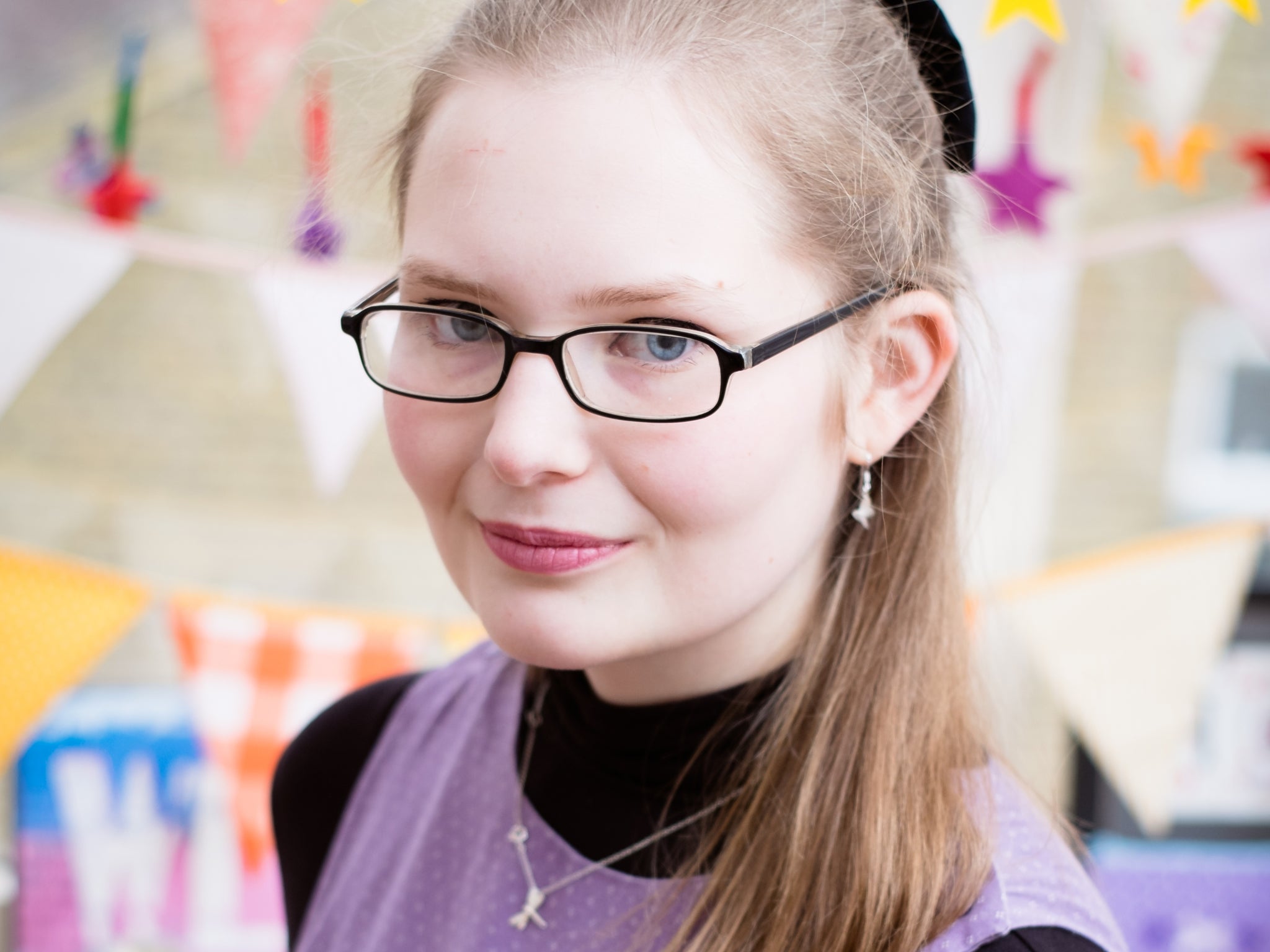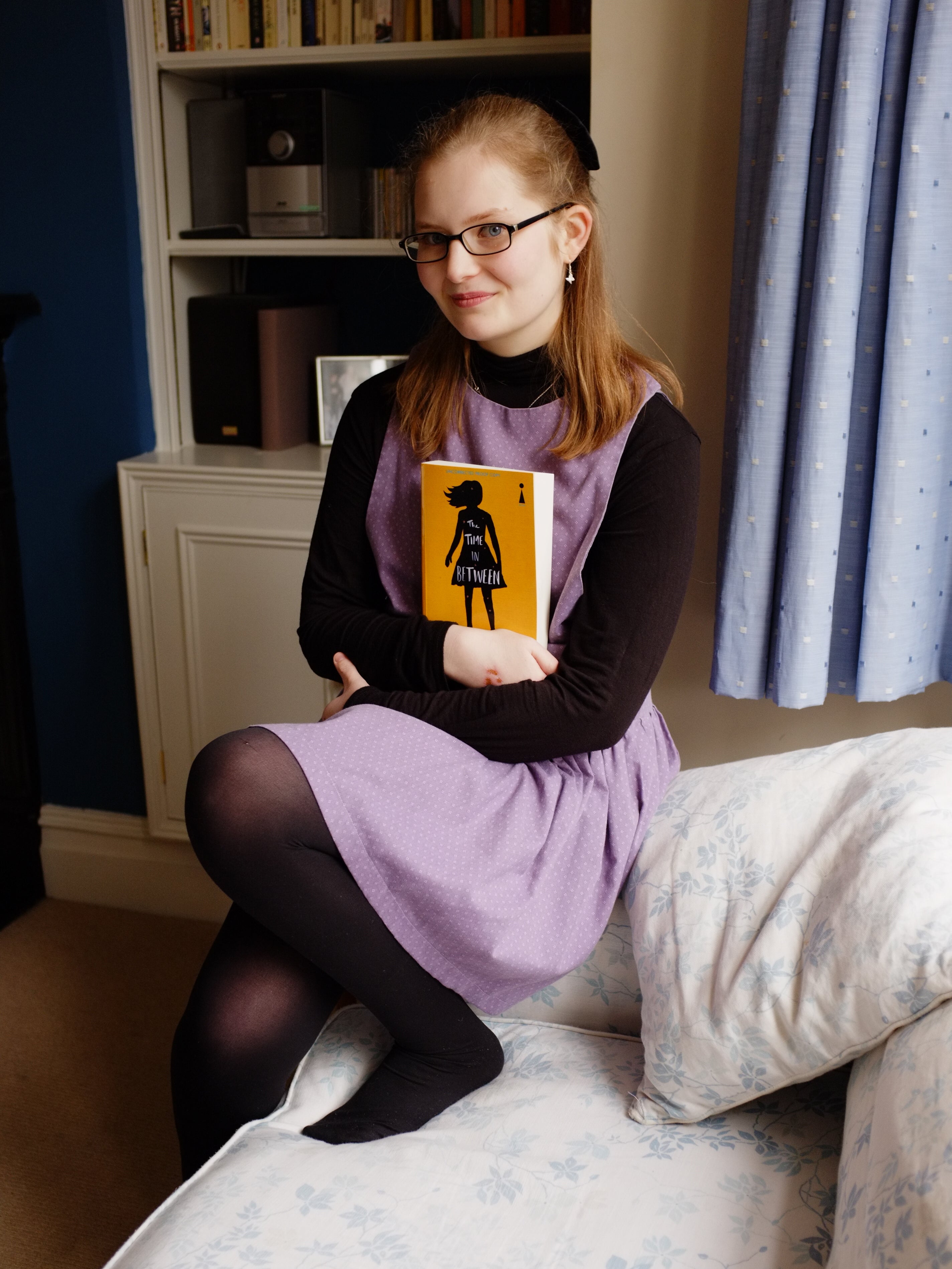Nancy Tucker: Author who has battled anorexia explains how linking eating disorders to skinny models shows 'horrific ignorance'
‘You could look at images of glossy magazines all day and it’s still not going to be enough.’

Nancy Tucker, author of a haunting first-person account of her struggle with anorexia as a child, wants you to understand that the often-blamed “size-zero epidemic” or “pressure to have a thigh gap” have nothing to do with anorexia.
In The Time In Between: A Memoir Of Hunger And Hope, Tucker tells the distressing story of how she developed severe anorexia at the age of 11. Now 21, Tucker likens putting her story on paper to vomiting: “The story needed to come out,” she says.
Tucker’s illness was so extreme, that at one point she went three months without eating. “By June 2, 2009, it has been three months and counting; three months without a meal; a snack; a celery stick; a sip of milk. I don’t do starvation by halves,” she writes.
Her writing is distinctive, engaging and slightly spiky. Tucker's discomfort living in her own body is made painfully clear.
Currently a nanny, Tucker is going to Oxford in autumn to study experimental psychology. Here, she tells The Independent about recovery, whatever that means, and why we need to re-think how we treat anorexia.
The Independent: How was the experience of writing the book?
Nancy Tucker: “The way I wrote it was very, very extreme, it was a purging experience. I wrote it in three days and three nights, I didn’t really sleep at all. And it just kind of flowed out. I wasn’t very present in the room and I just felt absorbed in it. I’d lived with it for so long and it had been this incredible bizarre huge frightening experience. It was almost like it wanted to come out, it was like being sick.”
How old were you when you became unwell?
NT: “The incidents of the first 'thinness thoughts' were when I was nine, and then I think it’s from when I was about 11 thoughts set in of 'I need to lose weight' and the descent into anorexia began was when I was about 12. I think of it as the beginning of secondary school.”
Do you attribute your anorexia in part to the stress of secondary school?
NT: “It was definitely a contributing factor. That transition can be a really traumatic thing – and for me it was going from a state primary to a very competitive all-girls pressure-cooker environment of a private school.”
Do you think that it’s common for girls at high-pressure schools to develop eating disorders?
NT: “I felt like the environment I was in fostered it. After a teacher refused to mark my homework because I went over the word limit, so I thought: 'I can’t write.' It had such a profound impact on me. I always wanted to please and wanted to be right. It was natural to think I couldn’t succeed in my normal academic arena, so I had to find another way I could achieve something.”
How do you feel when people link anorexia in young girls to models in magazines?
NT: “I’m always so pleased when I see people explaining that anorexia isn’t caused by models. To be fair, I don’t think it’s great that the role models that are held up are all glossy and beautiful, but it’s not the thing that causes eating disorders. It’s one-sided and a bit annoying.”
Like blaming a sad song for people committing suicide?
NT: “Exactly! It’s two things that are bad things, and mistakenly putting them together. What I’ve felt in the past, is that the culture we have in which people aspire to be thin – partly because of the media – it might influence people in a sub-conscious way. But in terms of the things that actually made me develop an eating disorder, it wasn’t even on the radar.

“To promote the argument that the media causes eating disorders is to show a horrific ignorance of what an eating disorder actually is. It’s not a monkey-see-monkey-do behavioural thing – it’s actually a form of total, extreme insanity. It’s such an extreme attack on your body – there’s no way you’d do it because of any external influence. You’d just give up! Any external influence would not be enough to make you go to the lengths you have to go to. I always say: ‘If you want to have an eating disorder, you’ve got to really fucking commit. You’ve got to WANT it.’ You’ve got to have something inside you making you really want to do it. You could look at images of glossy magazines all day and it’s still not going to be enough.”
Is it this part of the mistaken thing that feeling a bit bad about your body and being anorexic are the same thing?
NT: “Totally and also what I say is that nearly all women feel a bit bad about their body at some point or another, and women are often on a spectrum about being a little bit funny about what they eat. Eating disorders are just in another stratosphere. Eating disorders are about so much more than food. They’re very much about hunger, but it’s a hunger for such a huge range of things.”
Your style of writing is very controlled. Does that link somehow to how you felt at the time?
NT: “Yes, it’s very meticulous. It’s to do with having a mind that likes things to be ordered and likes things to have labels, and likes things to be in the right place. I think also the fact that it’s quite fragmented shows that I have a fragmented mind, and mine is not a very healthy one. Everything has to do a different thing and has to be right.”
Do you have an unhealthy mind?
NT: “I think my mind isn’t unhealthy, but it’s a mind that’s been through a lot and it’s one which has had to grow and shape itself in ways it would never have had to do if I’d never been ill. That’s also a question about whether you can ever recover - I’m not a great case study because I’m not recovered and I’m still working on it. I think I need to accept that recovering is not something that can be neat. It’s really messy, but I’m pleased to be different. I don’t really feel the need to say I’m better with a capital B.”
“My experience of my eating disorder has been a really scary one, but it’s also been, in a way, the most incredible thing. It’s been something I have learned so much from and something I would never ever have wanted to be without. The idea of not having developed an eating disorder really scares me, in a way. I don’t know who I would have been, and I fear I would have been maybe a superficial person. It’s quite reassuring to have been through something horrendous.”
The Time In Between is out now with Icon Books.
Join our commenting forum
Join thought-provoking conversations, follow other Independent readers and see their replies
Comments
Bookmark popover
Removed from bookmarks